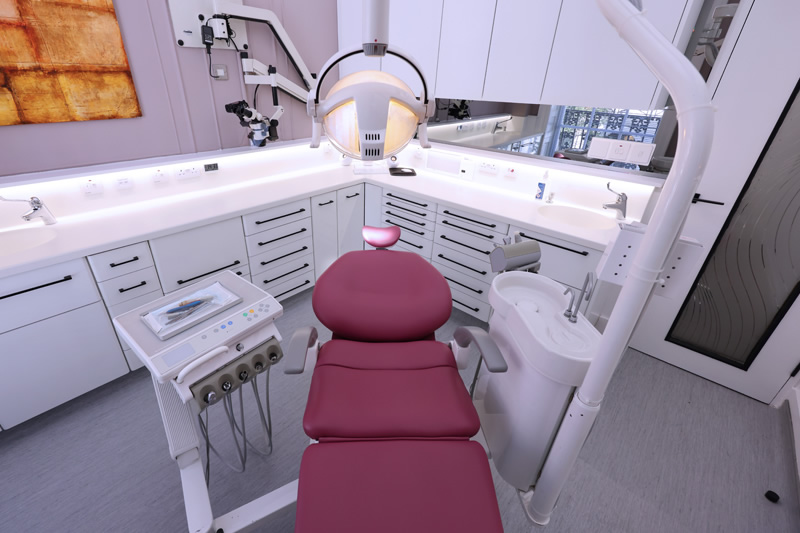Frequently Asked Questions
Cosmetic & Specialist
Emergency FAQs
-
Regular dental visits are important because they can help spot oral health problems early on when treatment is likely to be simpler and more affordable. They also help prevent many oral problems from developing in the first place. Visiting your dentist regularly is also important because some diseases or medical conditions have symptoms that can appear in the mouth.
-
There is no one-size-fits-all dental treatment. Some people need to visit the dentist once or twice a year; others may need more visits. You are a unique individual, with a unique smile and unique needs when it comes to keeping your smile healthy.
-
You may want to call or visit more than one dentist before making your decision. Dental care is a very personalized service that requires a good relationship between the dentist and the patient. During your first visit, you should be able to determine if this is the right dentist for you.
Mouth Cancer FAQs
-
Cancer can occur in any part of the mouth, on the tongue, lips and in the throat. Sadly, mouth cancer has a very high mortality rate. This is due to late detection. The positive news is that a "precancer" will sometimes form a long time before cancer develops, and if detected early, it can be treated rapidly with an excellent chance of prevention or cure. Some of the early symptoms of mouth cancer include: (This is by no means an exhaustive list, but a list of some of the more common symptoms.)
- • An ulcer or a sore throat that has persisted longer than three weeks
- • A white or red patch on the soft tissue, gums, tongue or lining in the mouth
- • A chronic sore throat or hoarse voice that persists for longer than six weeks
- • Difficulty in swallowing or a constant feeling that something is caught in the throat
- • A neck swelling that persists longer than three weeks
- • Numbness of the tongue or other area of the mouth
-
Smoking is a major cause of mouth and throat cancer and gum and bone disorders in the mouth. The team at 75 Harley St recognise that quitting smoking is a difficult challenge for most people and have established a quit smoking program to support and encourage their patients to quit and improve their confidence and their health and reduce their risk of mouth cancer. Limiting the amount of alcohol you drink will also reduce the risk of mouth cancer, as will attending the dentist regularly for your check-ups and cancer screenings.
-
If the dentist wants to confirm that a lesion is benign or is concerned about a suspicious lesion, a brush biopsy may be suggested. A brush biopsy is a painless test for oral cancer, which does not require an injection or any topical anaesthetic. It is simply a small brush, that the dentist will use to scrape some cells from the suspicious area. These cells are then prepared on a slide and delivered to the testing laboratory. The results are usually received within ten days and will indicate the nature of the lesion. It is a very safe and accurate test.
More information on Dental Health Checks
Bad Breath FAQs
-
While bad breath originates in the mouth 80% of the time, at other times it is a symptom of underlying disease which needs the earliest possible treatment.
Persistent bad breath is usually caused by the smelly gases of the bacteria that coats your teeth and gums. Smoking, garlic and onions can add to the problems. Certain illnesses such as diabetes, liver or kidney problems, nasal or stomach conditions and "dry mouth" (xerostomia) that affects the flow of saliva can be the cause of bad breath.
-
Persistent bad breath or a bad taste in your mouth can be an indicator of gum disease and other oral diseases so it is important that you uncover what's causing the problem. If constantly have bad breath, make an appointment to see your dentist. Regular checkups allow your dentist to detect any problems as your bad breath may be the sign of a medical disorder. If your dentist determines that your mouth is healthy, you may be referred to your primary care physician.
-
Once we have determined the degree and cause of the breath problem, the treatment can take many forms. If medical problem are found to be the underlying cause of bad breath, proper referral will be made. Recommendation will be made by the dentist to correct and treat any dental disease that is directly related to the breath problem or gum disease.
More information on Dental Hygiene
Gum Disease FAQs
-
Common symptoms of receding gums and bone loss are listed below.
- • You may notice that the teeth look longer than before or that the gum looks like it is pulling back from the teeth
- • You may notice a yellow edge at the margin of the tooth where it meets the gum (exposed tooth structure called Dentine)
- • You may suffer sensitivity at the gumline
- • You may notice deep pockets of gum forming in between the teeth
- • You may see or feel spaces between the teeth developing
- • You may notice a change in the way the teeth come together when you bite
- • Your teeth may be mobile (moving)
- • Your gums may be swollen, tender or bleed easily
- • You may suffer from bad breath or notice pus from the gum
-
A conservative and non-invasive approach via preventative hygiene, root planing and regular dental examinations is always the ultimate aim, however there are occasions when unhealthy tissue cannot be repaired in this way. Advanced techniques and superior materials can now be used to treat irreversible damage caused by periodontal disease or tooth brush abrasion.
-
Diabetes is a chronic disease which affects your body's ability to process sugar. The resulting high blood sugar can cause problems with your eyes, nerves, kidneys, heart and other parts of your body. Diabetes can also lower your resistance to infection and can slow the healing process. If you have diabetes, you are at greater risk of developing some oral health problems, including gum disease, so it's important that you are extra diligent with your oral health. Always brush your teeth twice a day for two minutes with fluoride toothpaste, floss daily, and see your dentist regularly.
More information on Gum Disease
Headache FAQs
-
A large number of cases involving headaches, muscle spasms and pain in the jaw are a dental problem. If your teeth don't close together properly, are heavily worn, crowns are constantly breaking, you have ringing in your ears and difficulty in opening or closing your mouth, you may well be suffering from TMJ problems.
-
We will assess your problem by taking a full medical history. We will then examine your bite, find the first contact when your teeth come together and look for evidence of grinding or clenching. A set of models will be taken to be analysed on an articulator to mimic the function of the TMJ.
If the pain is acute a Jig will be fitted to the front teeth which will separate the way you bite on the back teeth.
Once relief is obtained, a plastic appliance will be fitted very accurately so that when you bite on it, all your teeth meet at the same time in a position where your muscles are relaxed. If the problem is more complicated, we will advise on a treatment plan to correct the problem.
More information on Headache Relief
Oral Surgery FAQs
-
Oral Surgery involves the diagnosis, management and sometimes surgical or medical treatment of conditions of the mouth and the adjacent and surrounding structures. Oral Surgery is closely related to Oral & Maxillofacial Surgery/Medicine.
-
Not all wisdom teeth need to be removed. However, in some cases, the arrival of these teeth can cause serious problems, resulting in pain, swelling, or infection. The most common problem we see is that there is often not enough room for the wisdom teeth to come through when this happens removal of impacted wisdom teeth is recommended.
-
In most cases, wisdom teeth removal can be carried out under local anaesthetic to numb the tooth and surrounding area; meaning you may not need to be put to sleep for the procedure. Particularly nervous patients can speak to their oral surgeon about sedation prior to their appointment.
If your wisdom teeth have already come through, but you still need to be removed due to overcrowding, infection or decay, the extraction is often similar to that of a molar tooth.
However, impacted wisdom tooth removal is different. When a tooth has not yet come through, a very small cut must be made in the gum in order to access it. In some cases, a small piece of the bone may need to be removed if it is also covering the tooth.
-
Under the local anaesthetic, you won’t feel any sharp pains throughout the procedure. During the impacted wisdom tooth removal, however, you may feel some pressure as your oral surgeon widens the tooth socket by gently rocking the tooth back and forth. The pressure you feel is not great and it makes for a clean, quick and easy extraction.
More information on Wisdom Teeth Removal
Teeth Whitening FAQs
-
We provide you with custom-made mouth trays and several Polanight syringes so that you can whiten your teeth from home.
These syringes contain a carbamide peroxide whitening gel. This gel is positioned between your teeth and the tray. The gel comes in a variety of strengths with the higher percentages requiring less contact time.
When applied to the tooth, the chemicals break down into water and oxygen ions. Whilst the water will work to nourish and hydrate your tooth, the oxygen is able to enter the enamel. On entry, the ions break down long stain molecules which makes them lose their colour.
-
This will depend on the concentration of whitening gel used, as well as the frequency and length of time you use it for. But, there will be a limit on how white your teeth will get.
In most cases, you can expect your teeth to lighten by at least three to four shades. The teeth whitening gel will bring your teeth to their optimum level of natural whiteness, and then plateau. Once your teeth reach the level of brightness you want, or are not getting any lighter with the treatment, that’s when you know your treatment is complete.
The best teeth whitening results are normally seen after two or three weeks of using Polanight every day.
-
Again, this can vary. But, the results of your teeth whitening will last much longer if you make the effort to maintain them.
Coffee, tea, red wine and smoking also stain your teeth but with a good home oral hygiene routine and regular appointments with your dentist, your teeth could stay white for years.
-
Instead of visiting a qualified cosmetic dentist, many people buy home teeth whitening products online and assume they will be fine using them. This is extremely dangerous as these people don’t realise there are a large number of factors your dentist takes into account before starting a teeth whitening programme.
When you come in for your consultation your dentist will ask you a number of health and lifestyle questions and give you a physical assessment. If they say you’re okay to continue, you can start your treatment with our teeth whitening kit.
However, there are certain groups of people that we can’t treat. These groups are children, pregnant women, nursing mothers, and patients who suffer with gout.
More information on Home Teeth Whitening
Dental Veneers FAQs
-
As with most cosmetic dentistry procedures, the effects of your treatment will last much longer if you take good care of them.
Most dentists say porcelain veneers can last for up to 30 years when well cared for. The most common causes of premature failure are both trauma and tooth decay, so it is vital you do everything you can to protect and maintain your new veneers.
-
When you come in for your consultation at our surgery in Harley Street, your dentist will assess which of your teeth may require veneers. However, it is usually recommended that you go for an even number in order to ensure a mirror image on each side.
Whilst porcelain veneers are very natural looking, they will still be much less flawed than a real tooth. Veneers in sets of two, four, eight, ten or twelve tend to give the best results.
-
It is important to note that the veneers process is irreversible, so you should definitely think about all of your options before you go ahead with anything.
Since some enamel may be removed during the preparation, it is also possible that your teeth may become more sensitive to hot and cold food and drinks.
There is also a chance that your veneers could be unsuccessful and potentially fall off. Ensure you take good care of your veneers and other teeth to make them last as long as possible.
Dental Crowns FAQs
-
Crowns are an ideal restoration for teeth, which have been broken, or have been weakened by decay or by placing a very large filling. Root treated teeth may require a crown to protect the remaining tooth.
-
Crowns are made of a variety of materials and new materials are constantly introduced on the market. Different materials are used for different procedures.
More information on Crowns & Bridges
Dental Implants FAQs
-
Most generally healthy people are suitable for dental implants. We carry out a strict series of examinations and checks to make sure implants are right for you.
-
The procedure to place your implant will only take one or two hours, but a temporary crown will be fitted until the bone and implant fuse together. This can take between three to nine months, as every patient heals differently.
If you’re having an extraction, in many cases, we may be able to place your implant in the same appointment.
-
This is one of the most commonly asked dental implant questions we hear. But don’t worry, we’ll use a local anaesthetic when placing your implants so you won’t feel any pain.
Although the procedure may be invasive, we carry out your surgery with care; gently, cautiously and precisely. Our team are highly skilled and have extensive experience in dental implant treatments.
-
Once your bone and the tissue around your implant have healed (after about 3-6 months) and your crowns are properly fitted, how long your new teeth last is completely up to you.
The quality and upkeep of how you care for them will influence their durability. Implants need the same attention as real teeth. If you take care of them properly, they’ll last you a lifetime.
-
One of the main reasons an implant will fail is due to poor oral hygiene. Remember – your dental implant is a replacement tooth, so you do have to take care of it as though it were real.
Brushing at least twice a day, flossing, having regular check-ups with your dentist and seeing a dental hygienist regularly will all help keep your implants and surviving teeth healthy.
More information on Dental Inplants
Root Canal FAQs
-
Deep inside each of your teeth is a chamber and root canal. This is open space which contains living tissue called the pulp. You may have heard this referred to as the ‘nerve’, but actually it is more like an intricate web of fine tissue fibres, nerves and blood vessels. These are all encased and protected by your tooth enamel.
But, if a cavity was to grow large enough to reach the pulp, or if your tooth is somehow cracked, bacteria can make its way in. This can lead to infections which cannot be treated with antibiotics. Root canal treatment is the only way to effectively clear your tooth canal of any bacteria.
-
The purpose of the root canal treatment is to remove the bacteria from inside the tooth and to disinfect the root canals. This is achieved by making a small hole through the tooth into the pulp chamber, locating and measuring the root canals, then cleaning and widening them using fine instruments called files.
-
This is always the top concern for patients undergoing all kinds of dental treatment and the most commonly asked root canal question we hear. Luckily, root canal treatment is always performed under local anaesthetic.
-
Root canal treatment time can vary greatly with the complexity of the procedure. This can depend on which type of tooth is being operated on, if the treatment is being redone, or on your own personal circumstances.
You may also need to come in for a follow up appointment too. Your endodontist will tell you if this is necessary at your consultation.





